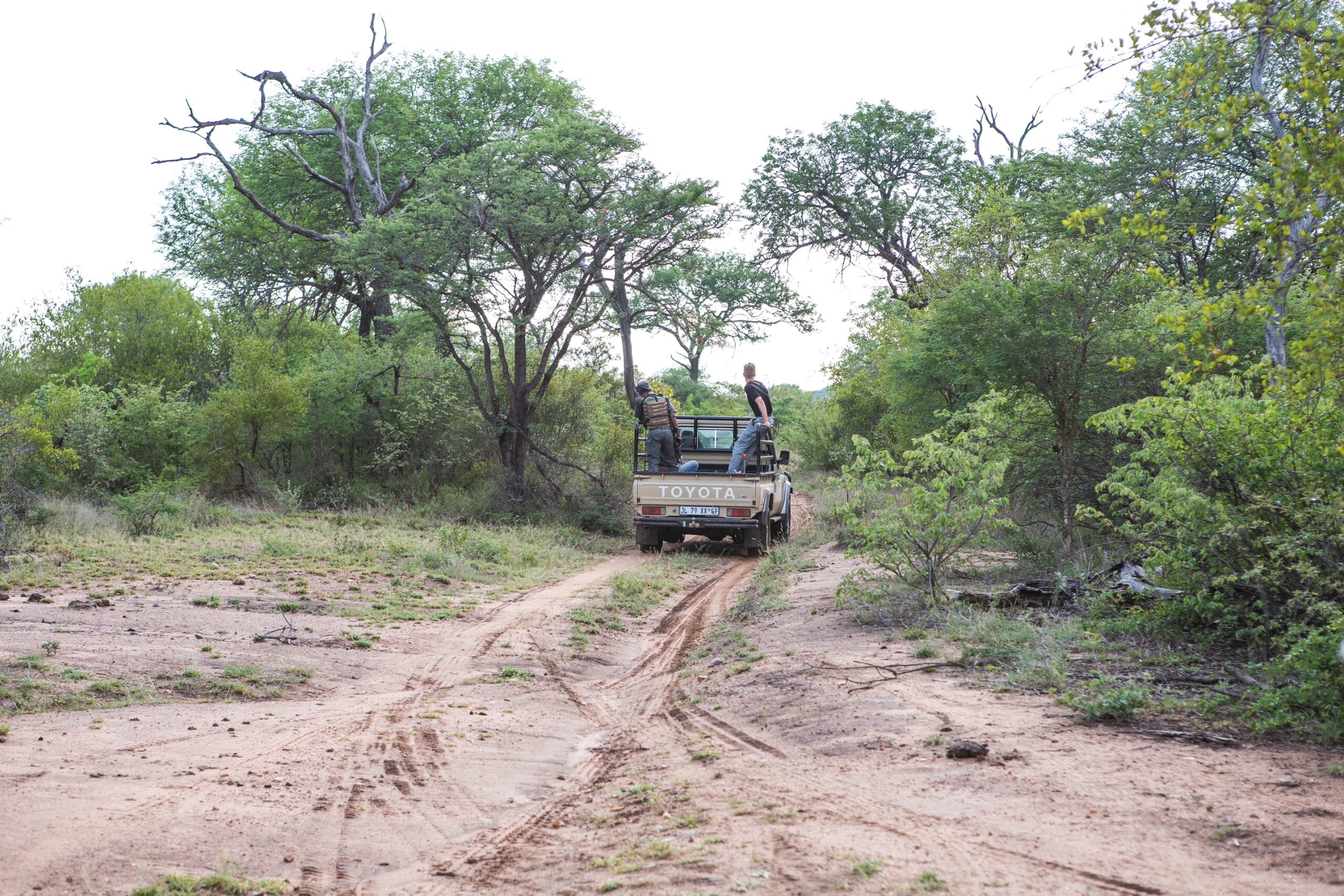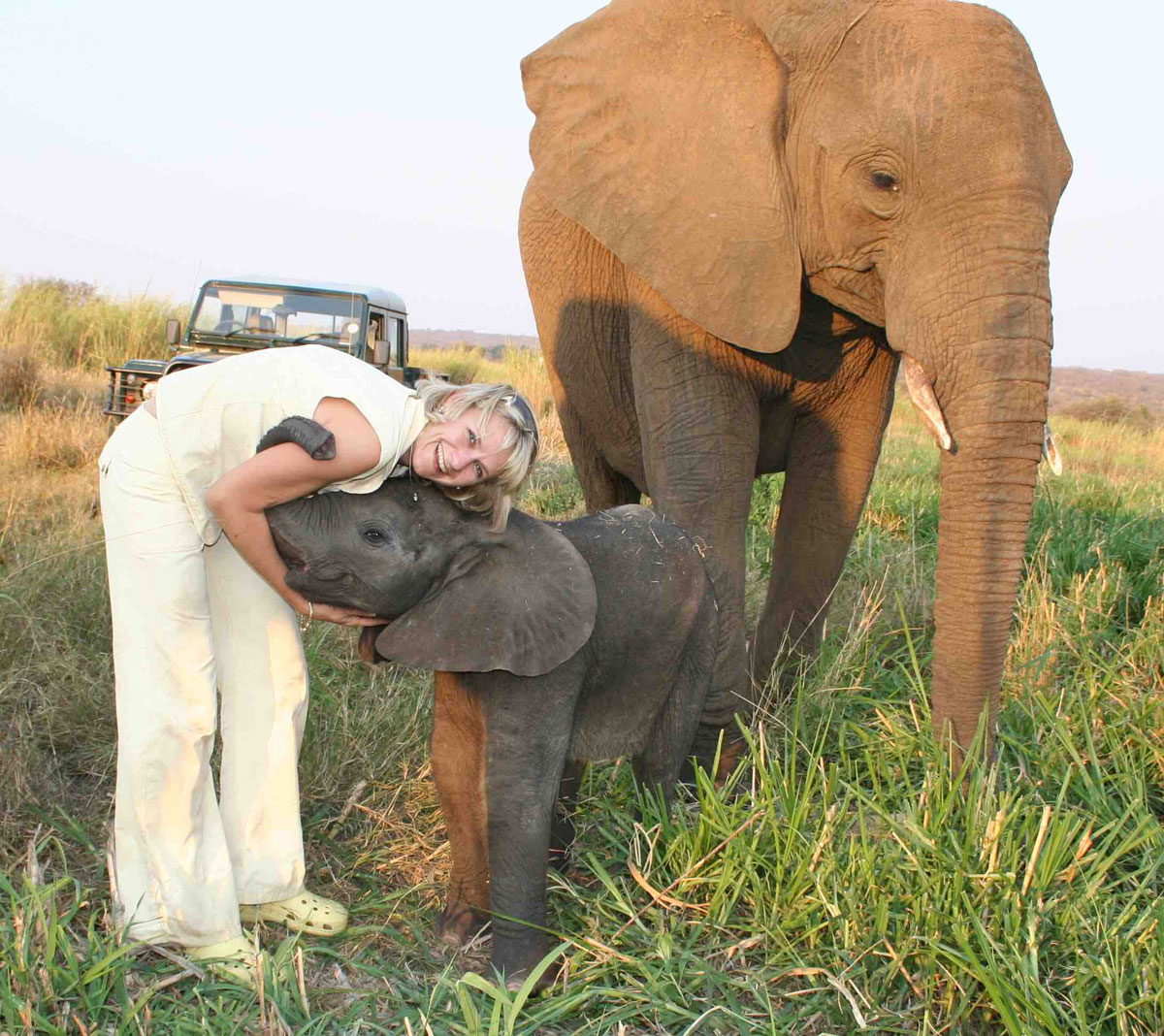“Fear is the opposite of love. When you love something or somebody, you do not fear, you respect. So far, the only way we can awaken love for wildlife in humans is by bringing them to the wilderness and giving them the opportunity to observe animals, learn about their lives, understand them, and eventually fall in love with them. Only then can we encourage humans to make a conscious choice to protect them.” ~ The Bush Babies on social media after a visit to HERD.
As populations grow and humans and wildlife live closer and closer to each other, the risk of human-wildlife conflict increases. Many people living in the communities next to nature reserves have never seen wild animals. Others have only encountered wild animals in conflict situations; when animals wander closer to raid crops or kill livestock, for example. It’s therefore no surprise that the children living in these communities often fear wild animals.
The future of wildlife conservation depends on children – especially the ones who live in communities next to nature reserves. But how can you care about protecting something that you fear?
This is what led to the creation of the Bush Babies Environmental Education Programme.
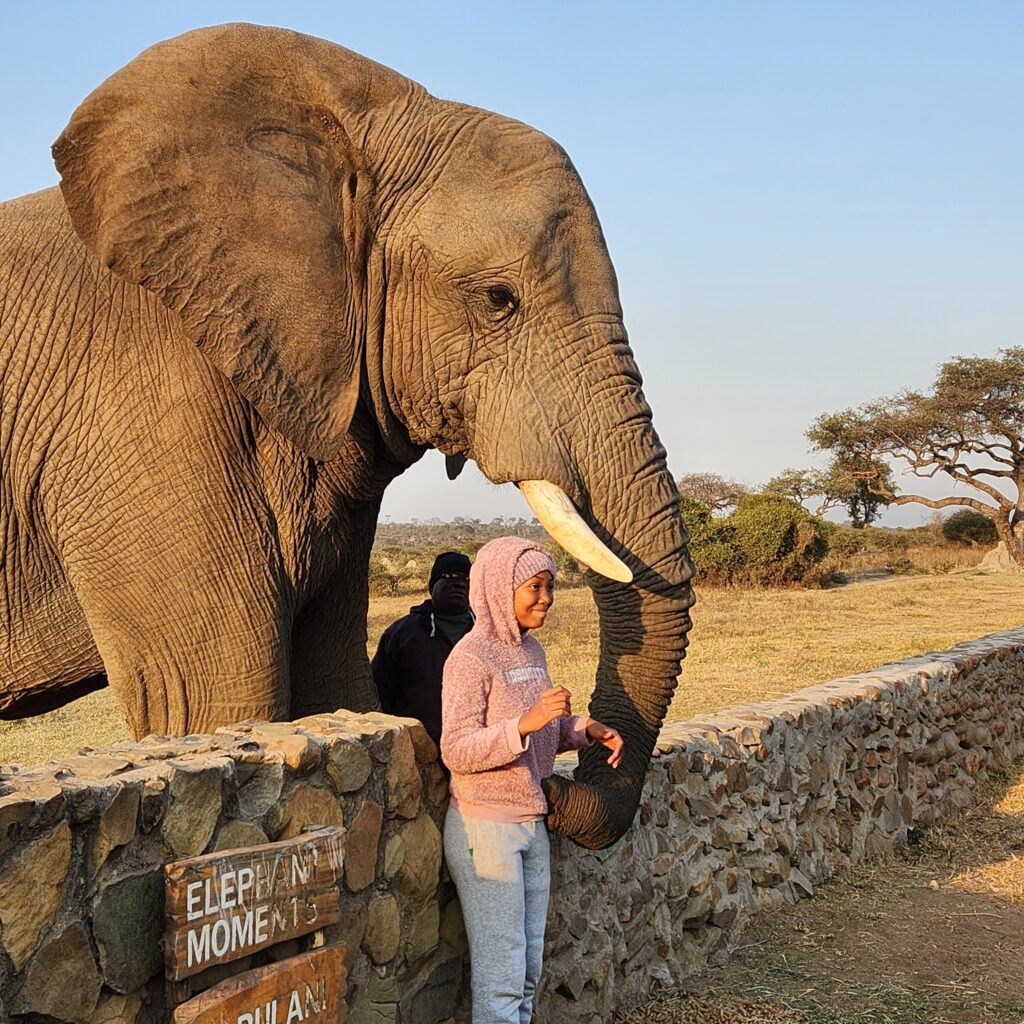
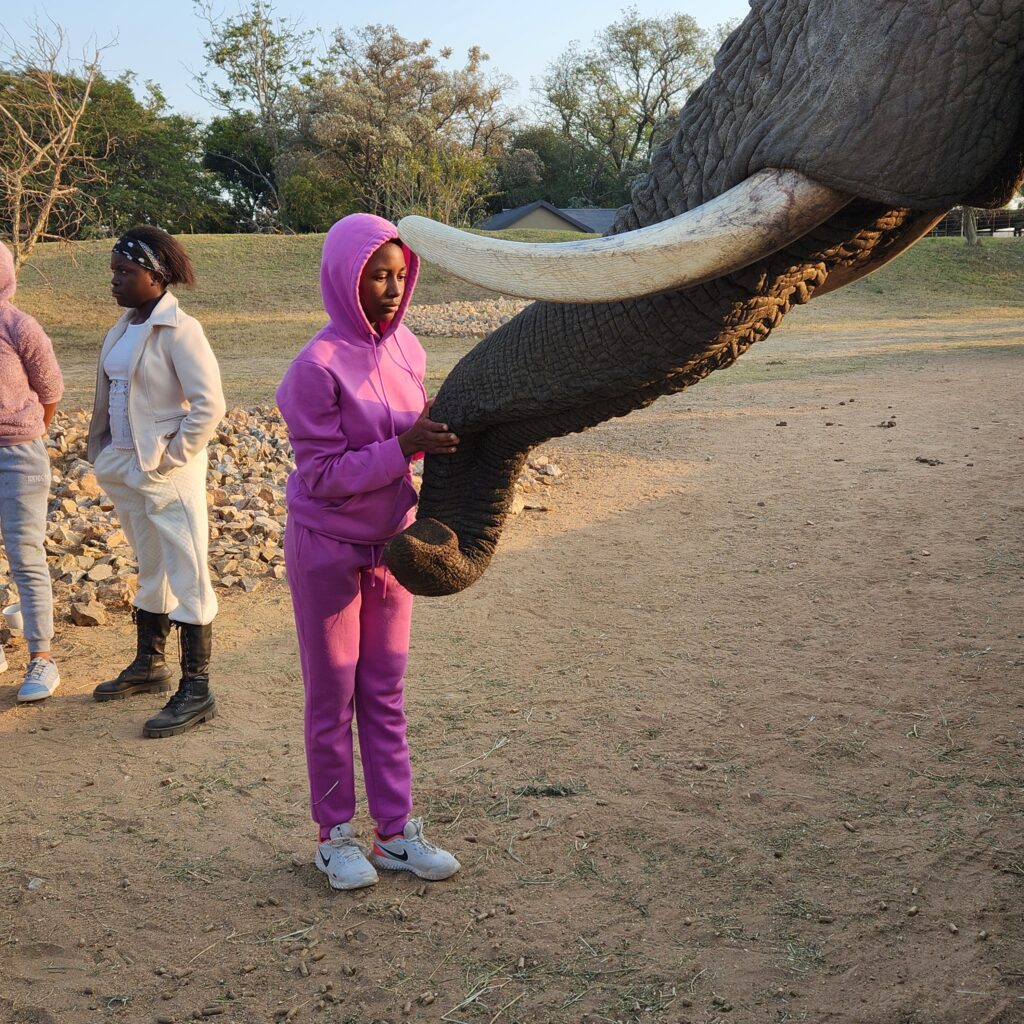
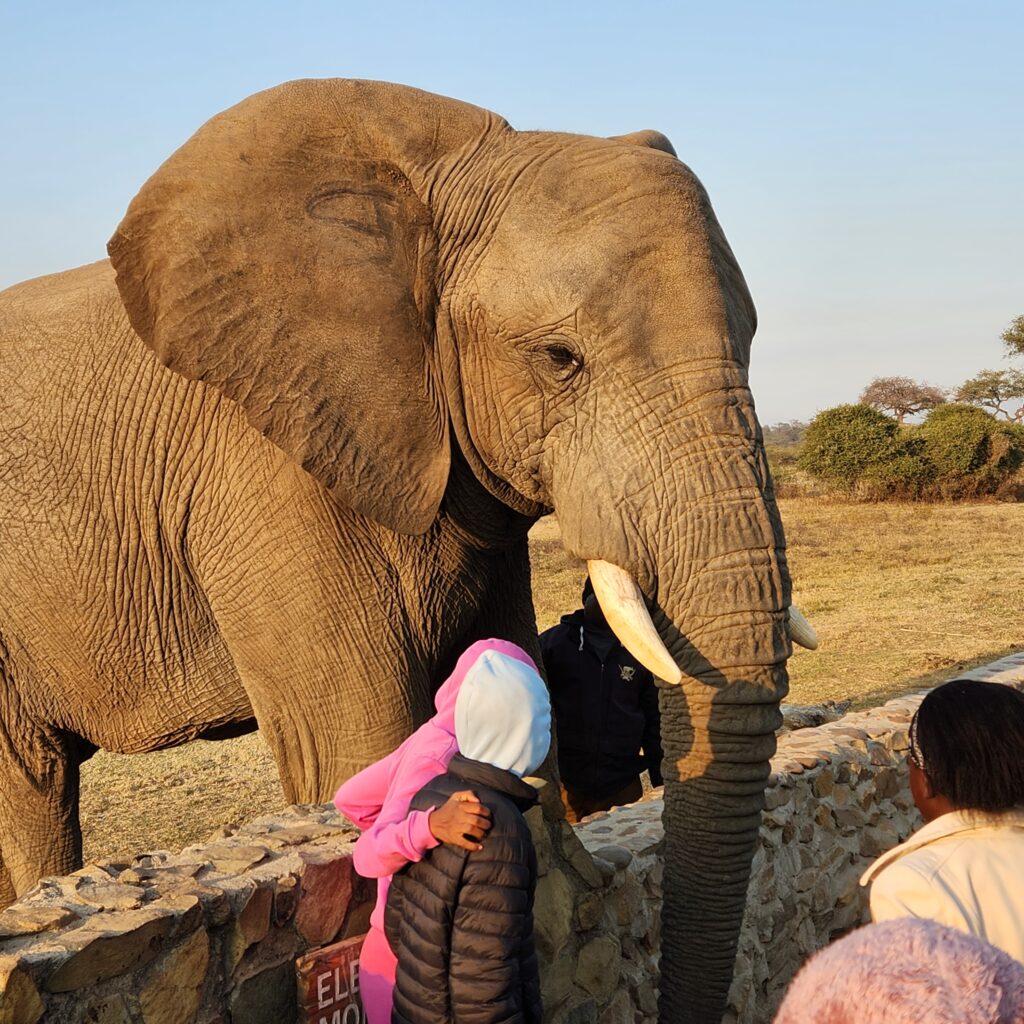
What is the Bush Babies programme?
The Bush Babies Environmental Education Programme was created by Transfrontier Africa in 2015. The programme aims to educate children living in communities surrounding the Greater Kruger National Park about the environment and the importance of conservation. The programme is managed by Lewyn Maefala. The Black Mambas, an elite all-female anti-poaching unit, also regularly assist with the programme.
Why is it important for children living in communities next to nature reserves to see wild animals?
Most of the children who live in communities next to nature reserves have never seen wild animals. Despite living so close to them, they have never had the opportunity to see an impala, kudu, zebra, giraffe, or elephant. They may have been warned of wild animals though, or told that wild animals are dangerous. Because of this, children living in these communities often fear wild animals. But these children will one day make decisions that affect the wildlife they live next to, and wildlife conservation will depend on them. “Conservation education is a long-term but critically important strategy. Today’s children will be making the hard decisions about protecting tomorrow’s wildlife,” explains Elizabeth Ross, the founder and director of the Kasiisi Project in Uganda.
It is therefore vital that these children learn about wild animals and come to care for them. The best way to do this is to bring the children into the wilderness they live next to.
How does HERD help with this?
At HERD, we aim to contribute to the local community in various ways, including by creating opportunities for environmental education. With this in mind, we invite the Bush Babies to visit HERD each quarter. These visits offer the children the chance to observe elephants up close and learn more about them. The children learn that they do not need to fear elephants. Instead, they come to care for elephants. The children also get to see the work we do at HERD and how it helps to protect the elephant species.
“Good conservation education begins with initiatives that generate excitement and curiosity about a world that children often take for granted. Children’s engagement in any subject depends on their being involved; they need “hands on” and enjoyable activities to learn well,” says Ross.
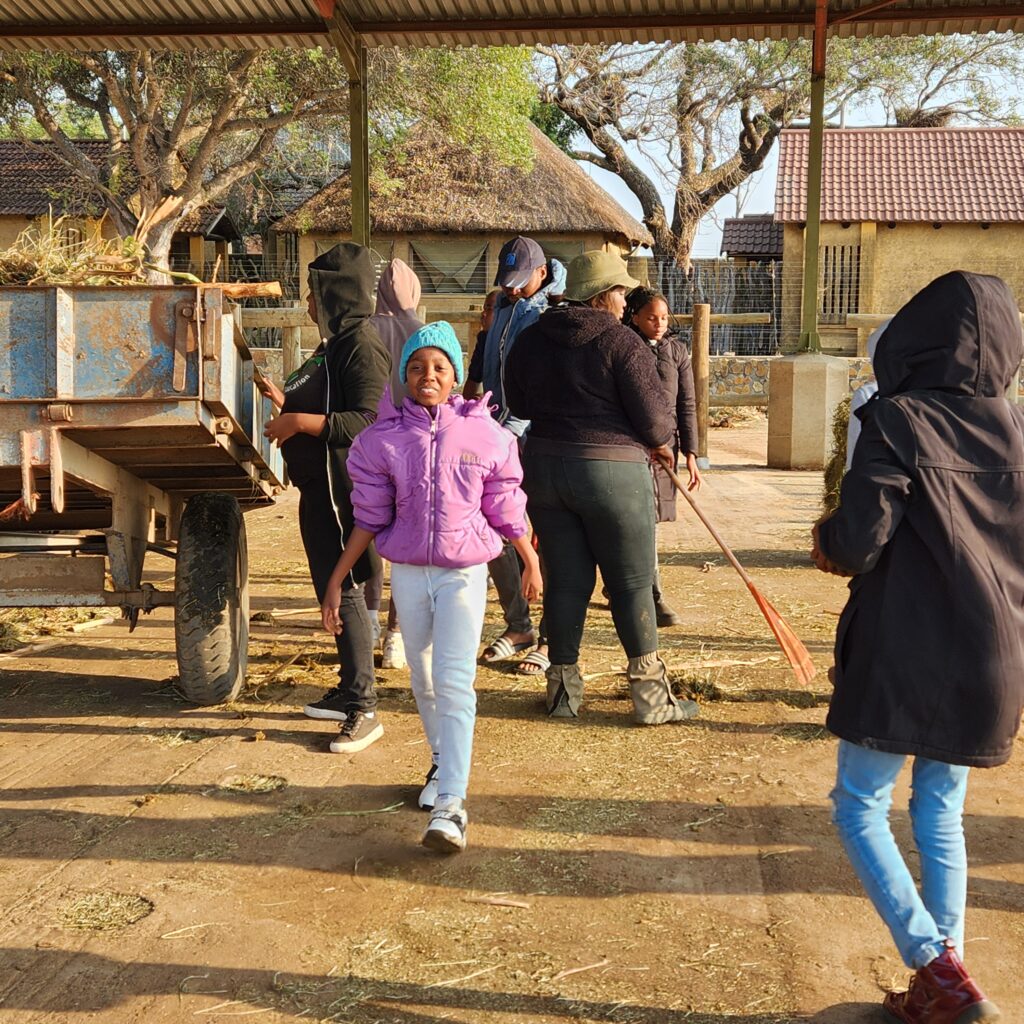
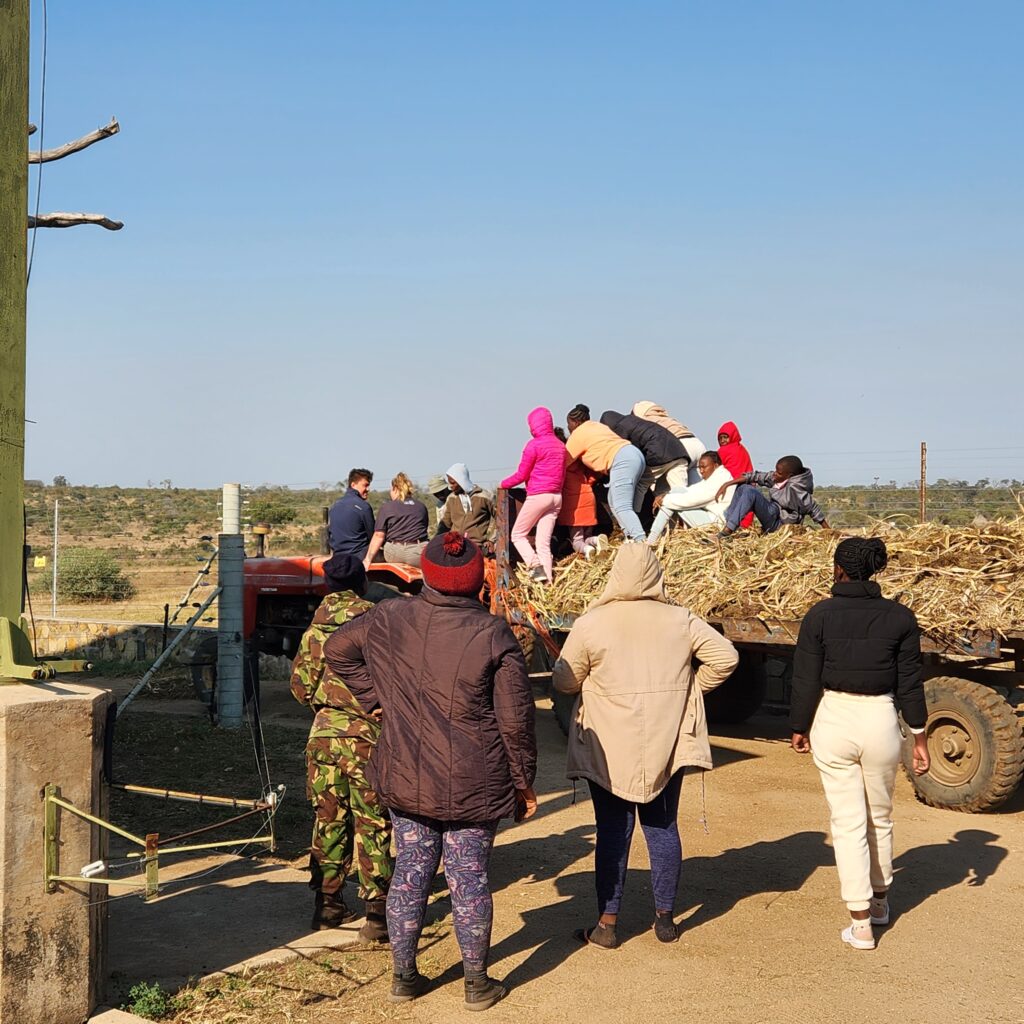
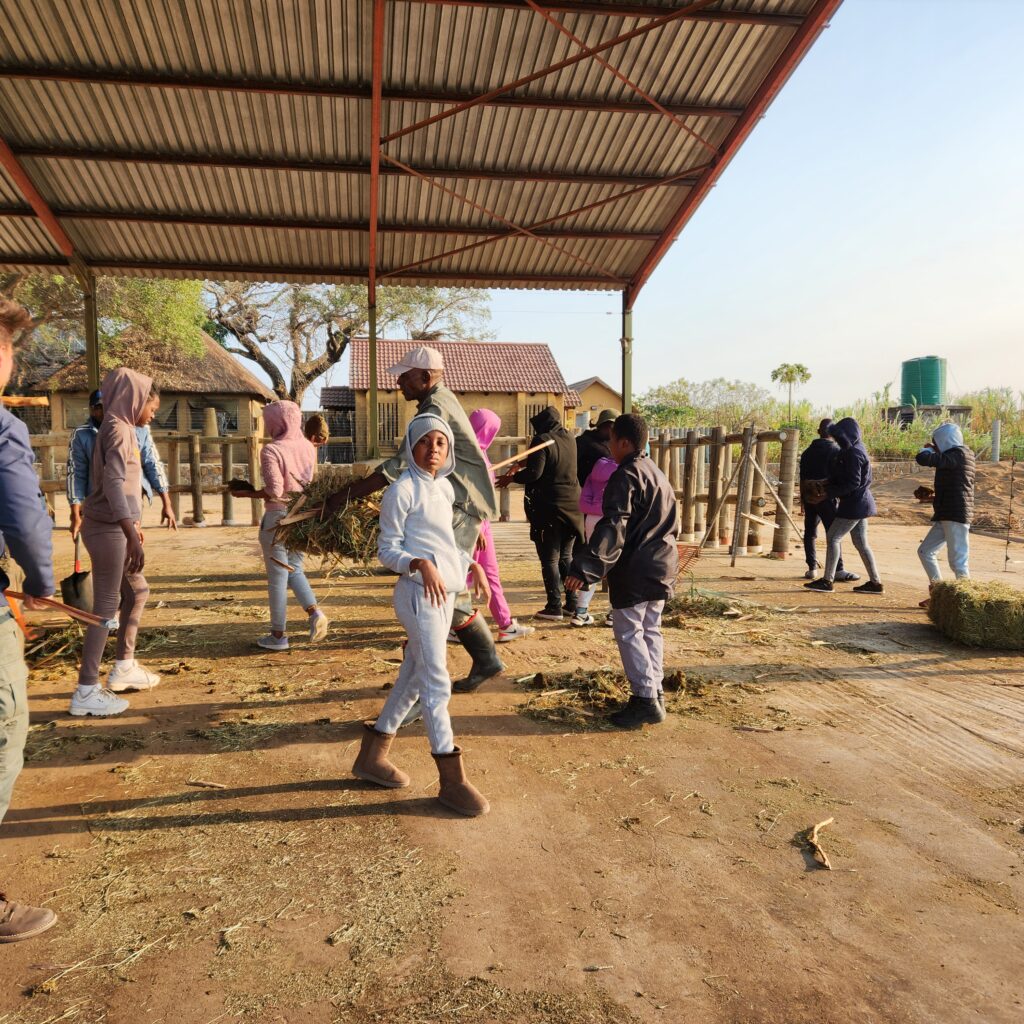
The Bush Babies Visit HERD
Just after 6:00 in the morning, a group of little Bush Babies arrive at HERD, bringing with them an atmosphere of excitement and nervousness.
The morning starts with an information session with our elephant carers. The carers explain how HERD started, and tell the children that they will be meeting three of the rescued elephants – Sebakwe, Somopane, and Jabulani.
After the session, Lewyn, who manages the Bush Babies programmes, makes sure that all the children understand the safety protocols. The children divide into groups and move towards the gentle giants before them. The three elephant bulls are standing behind a low wall, with a carer beside them and a bag of game pellets next to them.
At first, the children are too scared to go near the elephants, but as the morning progresses, they slowly find the confidence to feed the elephants, get a little closer, and to ask the carers questions.
After a while, the elephants leave to rejoin their herd in the wilderness. The Bush Babies aren’t ready to leave yet, and they offer to help clean up the elephants’ homestead. Every day, the homestead needs to be cleaned and the dung and leftover bana grass, lucerne, and branches need to be removed. Afterwards, fresh bana grass, lucerne, and branches are placed in the different sections of the homestead for when the elephants return in the evening.
The children, their teachers, and the Black Mambas join the HERD staff and assist them with cleaning the homestead. After learning that elephant dung is just grass and foliage, the children are more than willing to help pick up the dung. The homestead is filled with laughs and happy little faces.
With all the help, it takes just 20 minutes to clean the homestead. The children are taken to where they can wash their hands. And with the promise of breakfast, Lewyn and the children are back on the bus, heading home, having had a once-in-a-lifetime experience of spending time up close with Africa’s incredible elephants.
We loved having the Bush Babies and Black Mambas with us for the morning and being able to share our home with them, including all the lessons it has to teach us about elephants and looking after our world.
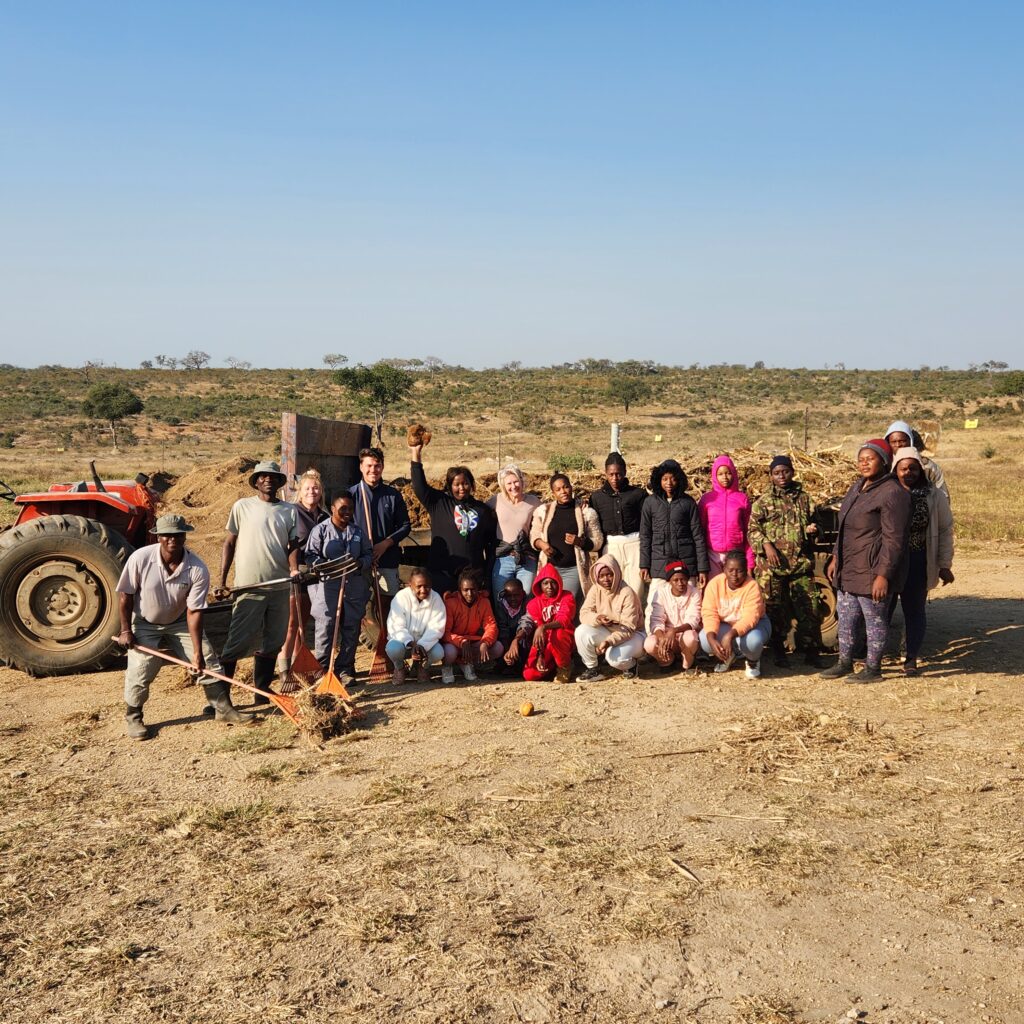
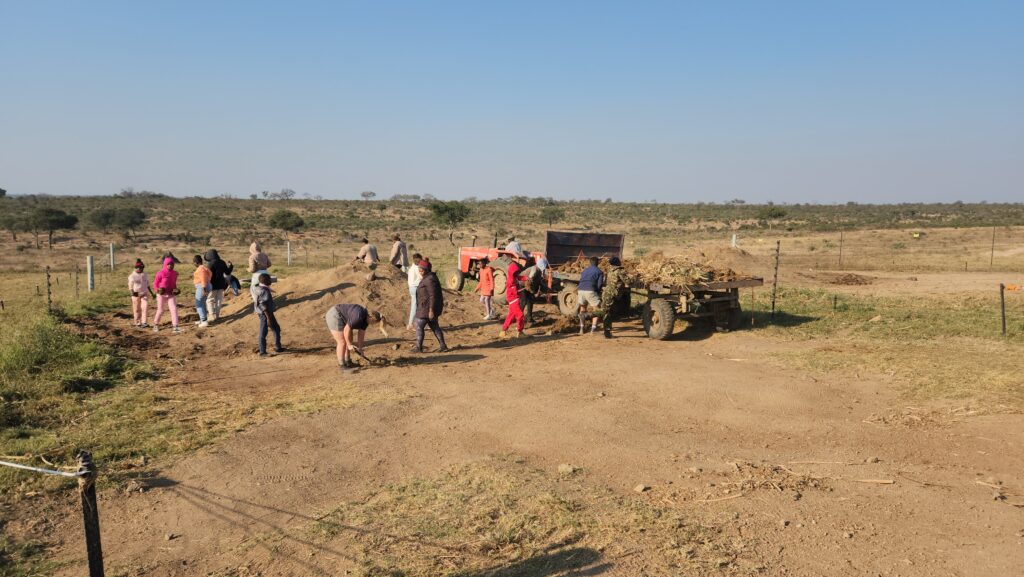
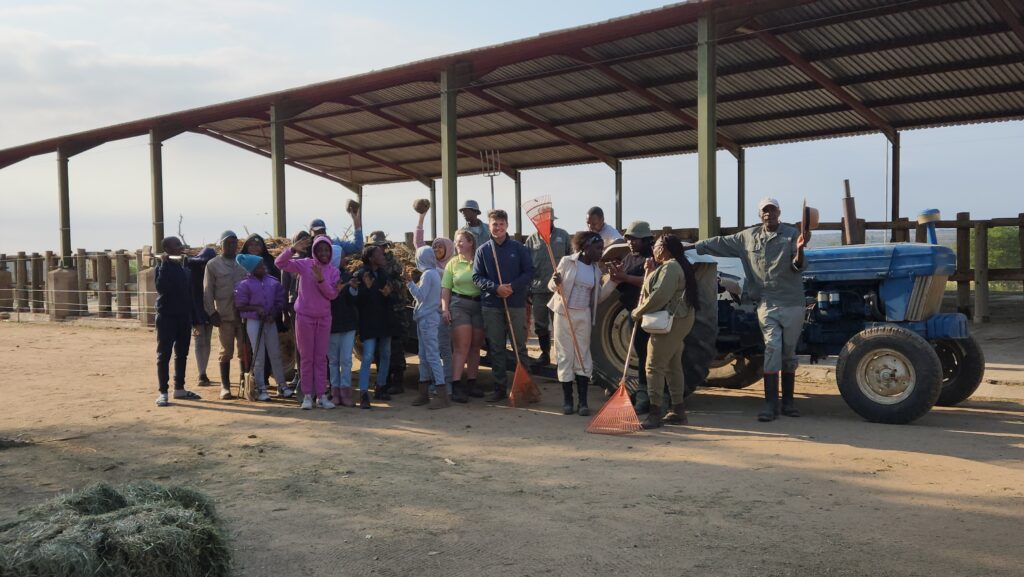



 Comment
Comment

